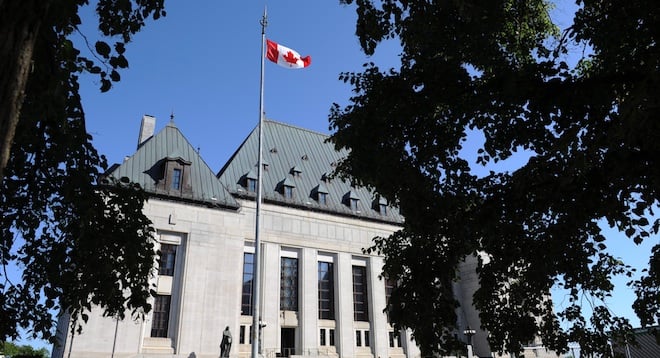Whither parliamentary consultation on Supreme Court nominees?
The Justice Minister is worried about leaks
Sean Kilpatrick/CP
Share

With a new Supreme Court justice now appointed to replace the unappointed Marc Nadon, without any parliamentary review of the new appointee, Liberal MP Irwin Cotler wonders what the future holds for the Supreme Court selection process.
Justice Clément Gascon cannot be faulted for the procedural shortcomings surrounding his appointment. Indeed, I share the high hopes expressed for his contributions to the court. Regrettably, Canadians and Parliament deserve a better process, particularly from a government that claims to pride itself on transparency, inclusiveness and accountability. With Justice Louis LeBel’s retirement this fall, one hopes that when it comes to process the government will finally get it right this time around.
I’ll correct Mr. Cotler on one point: As I noted last week, I’m told Chief Justice Beverley McLachlin was consulted on the appointment of Justice Clement Gascon.
But the future of the process is very much open to question. Asked about it last week, the Justice Minister made that apparent.
With respect to a future process for the appointment of the Supreme Court judges, of course we intend to, again, consult widely and certainly within Quebec and with those in the legal community. However, we are concerned with the process and the compromise that occurred in the leaking of information around it the last time, and so we will proceed with caution and haste in the future.
Stephane Dion followed that up by accusing the government side of being responsible for leaking information.
Mr. Speaker, when the minister talks about leaks that have tainted the recent Supreme Court appointment process, is he looking at himself in the mirror? Does he count among those leaks the disclosure by the Prime Minister’s Office of a confidential phone call from the Chief Justice? Has he launched an investigation to expose those high-ranking Conservatives who have slandered the Chief Justice? Does he not realize that no one has done more to undermine the process than he himself and the Prime Minister have?
There are various leaks—real or alleged or potential—that might be discussed here. Somehow the Globe and Mail ended up with the names of those who were considered and an account of which three justices were approved by the selection panel of MPs. There were those anonymous Conservatives who claimed to know the details of the Chief Justice’s discussions with the Justice Minister and Prime Minister’s Office. And there was the dancing around who took what position during and around the selection process.
Mind you, even without the leaks, the previous process was flawed and in need of reform.
If the Justice Minister is looking for ideas on how to move forward, Mr. Cotler notes a 2004 committee report that made various recommendations about how Supreme Court justices should be selected. You can view that report here—the proposed reforms start here. At the time, the Conservatives proposed that “there must be a public review of a short list of the nominees before a parliamentary committee” and that “there must be Parliamentary ratification of the chosen nominee.”
Furthermore, the Conservative party’s current policy declaration states that “the Conservative party believes that nominees to the Supreme Court of Canada should be ratified by a free vote in Parliament, after receiving the approval of the justice committee of the House of Commons.”